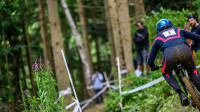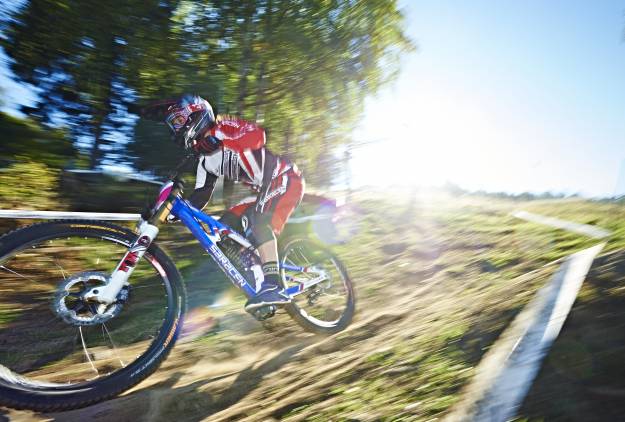New research commissioned by British Cycling and published today has shown the rising popularity of off-road e-bikes and electric mountain bikes (e-MTB’s), and highlights the need for improvements to cycling infrastructure and more inclusive policies to enable more people to enjoy the social and health benefits of this growing activity.
Focusing on current and future trends, the study undertaken by Edinburgh Napier University looked at the opportunities and challenges presented by the growth of the e-MTB market over recent years, and has also offered recommendations to improve access and inclusion, develop facilities and provide clear information and advice as e-MTBs continue to grow in popularity. The full report is now available here, but key findings include:
- e-MTB riders are riding further, faster and more frequently throughout the year compared to other cyclists. Mental health was cited as the biggest benefit of riding e-MTB’s (39%).
- Most riders (83%) were likely to avoid trails in fragile areas and the majority of riders, particularly women, were looking for social rides with the preferred location being trail centres.
- In the future, riders are looking for e-MTB friendly gates and barriers at trail centres, as well as for trails and trail features to be more compatible with two-wheel and adapted e-MTB’s.
- The demographics of e-MTB riders in Britain showed that 96% of people riding e-MTB’s are white, 15% are disabled and primarily ranged from 45-74 years old, with the majority of riders being male. In September last year, British Cycling partnered with the Colour Collective to increase the number of trained MTB leaders from diverse ethnic communities.
- In total, 90% said that cost was the main barrier to participation.

As study co-ordinators, British Cycling collaborated closely with Britain’s primary mountain bike trail providers Forestry England, Natural Resources Wales and Forestry and Land Scotland, as well as NatureScot, Developing Mountain Biking in Scotland (Scottish Cycling) and Welsh Cycling to fund and support the research project.
A broad range of contributors were involved, ranging from regular riders and the e-MTB curious (who are interested but have yet to take up e-MTBing), land managers, retailers and manufacturers, and as the e-MTB market continues to grow, it is hoped that the research will support organisations to better understand user habits, technical developments and improvements needed to ensure that it continues to be a safe and inclusive environment for riders and landowners.

British Cycling’s Official and Off-Road Leadership Lead, Ben Creed, said:
"On behalf of British Cycling I want to thank all those involved for their work and support on this insightful report. Cycling participation in e-MTB has skyrocketed in recent years and is becoming increasingly accessible to the wider population. The results from this research are incredibly useful for us and will support our work to capitalise on the opportunities and prepare us for challenges that we may encounter.
"The volume of e-bikes and e-MTBs is already significant and growing fast. We know that they support many riders to be more active, as well as being a lifeline for those who might not otherwise be able to ride. We are keen to develop new ways in which we can appeal to and engage an even wider audience, including those who are currently inactive, such as our Breeze into the Forest programme for women, and our work with the Colour Collective to increase the number of trained MTB leaders from diverse ethnic communities.
"We are taking on board the recommendations offered and are already working towards creating sustainable growth through widening participation, trail infrastructure, and responsible access. We hope that by working together to manage increasing levels of access, we can help to mitigate the impact on environments, maintain rider safety, and enable more riders to enjoy cycling in our amazing countryside."
Forestry England’s National Cycle Infrastructure Manager, Dan Cook, said:
"This year-long, rigorous research has produced some incredibly useful insight, thanks to all those who contributed through the survey, focus groups or direct conversation. It is clear that the ever-increasing proportion of e-MTBers will be a crucial part of the future growth of mountain biking.
"I am really pleased that this study provides guidance towards how we can create the best offer to e-MTBers in Britain’s forests. We know that riders love the forest environment and this study will influence our decision making on existing and new trail developments and infrastructure as well as the support that e-MTBers need to start, such as Breeze into the Forest, and continue to ride for a lifetime of enjoyable and responsible e-mountain biking."










